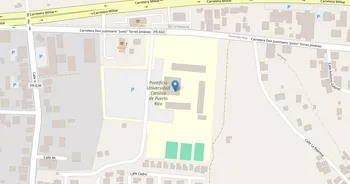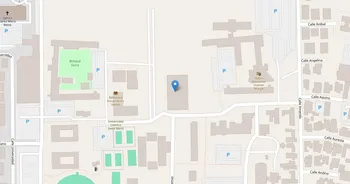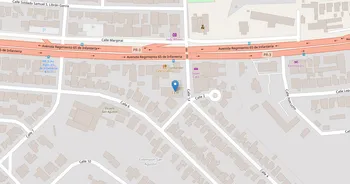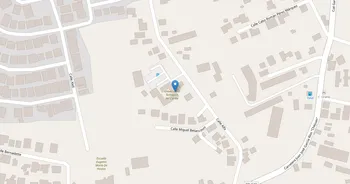Caribbean University, Carolina : Overview, Courses, Scholarships & Rankings
About Caribbean University
Set in Carolina's urban energy, Caribbean University's Carolina campus pairs practical academics with Puerto Rican warmth. The campus is compact and approachable, with a library, computer labs, advising, tutoring, and counseling. Coursework leans toward applied projects across fields like business, education, health, technology, and public service.
Student life is close knit and bilingual, moving easily between Spanish and English. Clubs, leadership roles, service days, and cultural events keep campus life active. Career prep includes workshops, internship support, and proximity to employers, schools, and the tourism sector. Living in Carolina brings access to San Juan's arts and entrepreneurial scene. And the campus culture leans into service and island pride.
Key Institutional Details
Contact & Profile
Academic & Institutional
Academic Programs & Fields of Study
Caribbean University, Carolina offers 8 degree programs across 5 major academic fields, graduating approximately 18 students annually. The most popular fields by graduate volume are Public Services (1 programs, 5 graduates), Education (3 programs, 4 graduates), Health (1 programs, 4 graduates), Security & Safety (1 programs, 3 graduates) and Business (2 programs, 2 graduates). Explore program details, award levels, and graduate demographics below.
Public Services (1 programs, 5 graduates)
Public Administration, Social Work and Community Services
| Program Name | Graduates | Gender Distribution | Award Levels | CIP Code |
|---|---|---|---|---|
| Social Work | 5 |
|
Bachelor's
|
44.0701 |
Education (3 programs, 4 graduates)
Educational Sciences, Teaching Methods and Pedagogy
| Program Name | Graduates | Gender Distribution | Award Levels | CIP Code |
|---|---|---|---|---|
| Special Education Teaching | 2 |
|
Master's
|
13.1001 |
| Curriculum and Instruction | 1 |
|
Master's
|
13.0301 |
| Elementary Education | 1 |
|
Bachelor's
|
13.1202 |
Health (1 programs, 4 graduates)
Healthcare Professions, Medical Sciences and Clinical Practice
| Program Name | Graduates | Gender Distribution | Award Levels | CIP Code |
|---|---|---|---|---|
| Practical Nursing and Nursing Assistants | 4 |
|
Certificate (1-2 yrs)
Associate's
Bachelor's
|
51.3999 |
Security & Safety (1 programs, 3 graduates)
Emergency Management, Law Enforcement and Public Safety
| Program Name | Graduates | Gender Distribution | Award Levels | CIP Code |
|---|---|---|---|---|
| Criminal Justice and Police Science | 3 |
|
Associate's
Bachelor's
|
43.0107 |
Business (2 programs, 2 graduates)
Business Administration, Marketing and Entrepreneurship
| Program Name | Graduates | Gender Distribution | Award Levels | CIP Code |
|---|---|---|---|---|
| Business Administration and Management | 1 |
|
Bachelor's
|
52.0201 |
| Accounting | 1 |
|
Bachelor's
|
52.0301 |
Tuition, Fees & Estimated Costs
Overview of tuition rates, housing, and other annual education expenses for undergraduate and graduate students
Financial Aid & Student Support
Summary of scholarships, grants, student loans, and financial aid statistics for undergraduate students
Student Success Metrics
Graduation rates and post-graduation earnings to help assess student outcomes and long-term value of education.
Loan Burden & Repayment Outcomes
Breakdown of loan repayment rates and student debt levels by income and dependency status.
Frequently Asked Questions
Find answers to the most common questions about Caribbean University, Carolina
How much does it cost to attend Caribbean University, Carolina?
The annual tuition at Caribbean University, Carolina is $5,575 for in-state students. When including room and board, books, and other expenses, the total estimated cost is approximately $7,225 for in-state students. Additional costs include room and board $7,953 (off-campus) and books and supplies $1,650.
Data based on IPEDS program completions for 2022-2023 academic year. Tuition and cost estimates are approximate and may not include all fees, personal expenses, or transportation costs.
What academic programs and degree levels does Caribbean University, Carolina offer?
Caribbean University, Carolina offers 8 academic programs across 5 major fields of study, with available degree levels: Certificate (1-2 yrs), Associate's, Bachelor's, Master's.
Most popular program areas include:
- Public Administration, Social Work and Community Services (1 programs)
- Educational Sciences, Teaching Methods and Pedagogy (3 programs)
- Healthcare Professions, Medical Sciences and Clinical Practice (1 programs)
- Emergency Management, Law Enforcement and Public Safety (1 programs)
- Business Administration, Marketing and Entrepreneurship (2 programs)
Data based on IPEDS program completions for 2023-2024 academic year. Numbers reflect programs where students graduated, not all offered programs.
What financial aid and scholarships are available at Caribbean University, Carolina?
Caribbean University, Carolina provides financial aid to 11% of first-time, full-time students, with average grants of $3,149 and average loans of $2,750.
Average financial aid amounts by type:
- Pell grants: $3,233
- Institutional grants: $250
- Federal loans: $2,750
The university supports 13 students with grants and 1 students with loans annually.
Data based on IPEDS for 2022-2023 academic year. Financial aid amounts and percentages may vary by program, enrollment status, and individual circumstances.
What is the average salary for Caribbean University, Carolina graduates?
Caribbean University, Carolina graduates earn a median salary of $18,349 after 6 years and $22,842 after 10 years.
The salary range 10 years after graduation spans from $12,390 (25th percentile) to $38,346 (75th percentile), with top earners reaching $40,700 (90th percentile).
Data based on IPEDS for 2022-2023 academic year. Salary data reflects graduates who received federal financial aid (approximately 60% of all graduates). Actual earnings may vary significantly based on program, location, and individual circumstances.
Related Universities




Found something useful? Help others discover it too! Share with friends, on social media, or save for later - every share helps someone find the information they need.